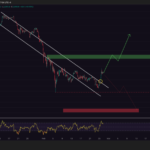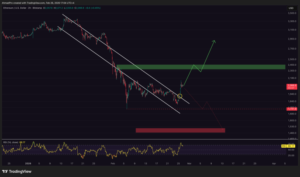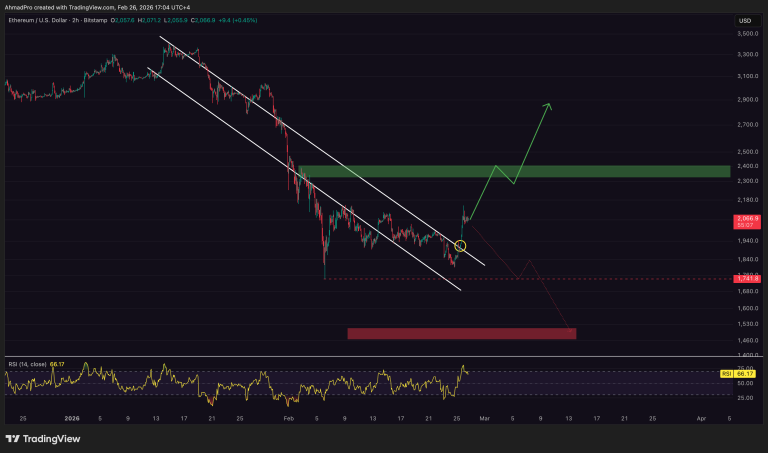Last updated:
 Why Trust Cryptonews
Why Trust Cryptonews
Ad Disclosure
We believe in full transparency with our readers. Some of our content includes affiliate links, and we may earn a commission through these partnerships. Read more

China has responded swiftly to new U.S. trade measures, imposing tariffs on a range of American imports just minutes after the latest U.S. levies took effect.
At 12:01 a.m. ET (05:01 GMT) on Tuesday, a 10% tariff on all Chinese imports into the U.S. came into force, as announced by President Donald Trump.
In retaliation, China’s Finance Ministry announced fresh tariffs on key U.S. exports. Crypto market retraced as major coins briefly dumped on the news.
China Imposes New Tariffs on U.S. Energy and Auto Sectors
The measures include a 15% duty on coal and liquefied natural gas (LNG) and a 10% tariff on crude oil, farm equipment, and select automobiles.
The new tariffs will be implemented on February 10, according to the ministry’s statement.
In a separate move, China’s Commerce Ministry and the Customs Administration introduced export controls on critical minerals, including tungsten, tellurium, ruthenium, and molybdenum.
Officials stated that the restrictions were necessary to “safeguard national security interests.”
While Trump temporarily suspended his planned 25% tariffs on Mexico and Canada after securing border enforcement concessions, no such leniency was extended to China.
A White House spokesperson confirmed that Trump had no immediate plans to speak with Chinese President Xi Jinping, though a conversation could take place later in the week.
China also expanded its Unreliable Entity List, adding two major U.S. companies: PVH Group, the parent company of fashion brands Tommy Hilfiger and Calvin Klein, and Illumina Inc., a biotech firm specializing in genomic sequencing.
According to China’s Commerce Ministry, these firms allegedly violated market principles and engaged in discriminatory practices against Chinese companies.
Businesses placed on the Unreliable Entity List face potential fines and restrictions on trade and investment in China.
Meanwhile, China has launched an anti-trust investigation into Google, further intensifying the trade conflict.
The probe, announced shortly after the U.S. tariffs took effect, suggests that Beijing is willing to retaliate against American firms amid the escalating dispute.
With both countries tightening trade restrictions, the latest developments mark a significant escalation in the U.S.-China trade war, raising concerns about its potential impact on global markets.
Crypto Prices Surge After U.S. Pauses Tariffs on Mexico
The cryptocurrency market saw a strong rebound following the U.S. decision to delay tariffs on Mexico, easing investor concerns over escalating trade tensions.
Bitcoin (BTC) briefly surged past $102,500, while Ethereum (ETH) climbed to $2,900, marking significant gains after a volatile trading period.
The rally came after President Donald Trump announced a 30-day pause on proposed 25% tariffs on Mexico and Canada in exchange for stronger enforcement measures on border security and crime prevention.
The decision provided relief to global markets, with crypto assets benefiting from renewed risk appetite among investors.
Altcoins also saw sharp recoveries. XRP briefly surged 40%, erasing its previous losses, while Solana’s SOL advanced 5% to trade at $210.
Analysts noted that while cryptocurrencies remain sensitive to macroeconomic events, the delay in tariffs on Mexico helped improve sentiment, driving speculative interest back into digital assets.



















